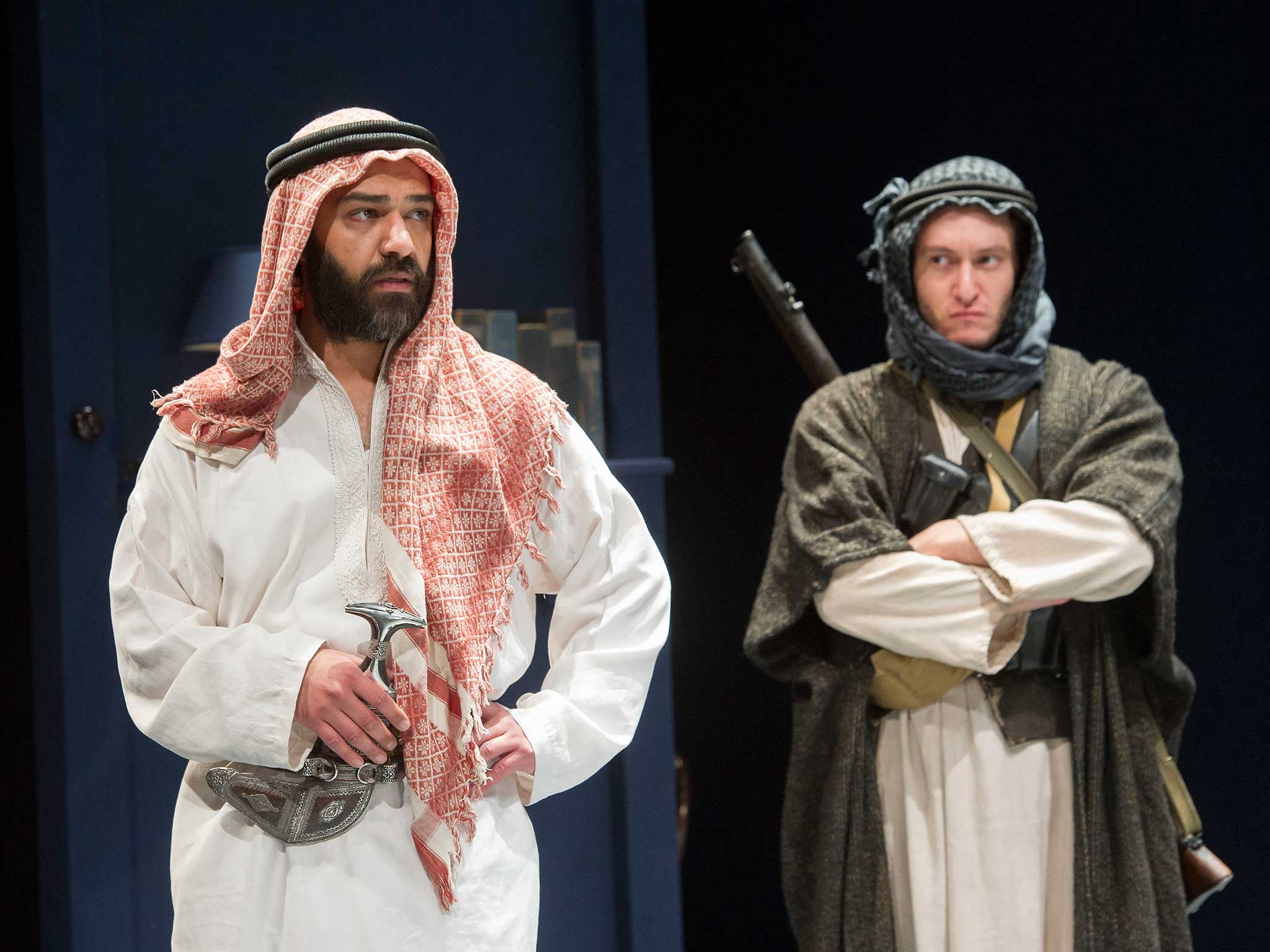Lawrence After Arabia, Hampstead Theatre, London, review: ‘Intriguing but underpowered’
Lucid direction by John Dove, but this play is too bitty and lacks momentum

In his play Forty Years On, Alan Bennett has a good waspish gag about TE Lawrence: “Clad in the magnificent white silk robes of an Arab prince... he hoped to pass unnoticed through London. Alas, he was mistaken." Lawrence's love-hate relationship with his own celebrity is one of the issues explored in Howard Brenton's intriguing, richly researched but underpowered new play at the Hampstead Theatre.
Lawrence became a hero because of his participation the Arab Revolt (1916-18) against the Ottoman Empire in the First World War. Brenton's play catches up with him in 1922 hiding out at the Hertfordshire home of George Bernard Shaw and his wife Charlotte. The “uncrowned King of Arabia” has now enlisted under a pseudonym as a common airman in the RAF. Why the desperate craving for obscurity?
Lucidly directed by John Dove, the piece moves between the Shaws’ hospitable household, where they are helping him to edit The Seven Pillars of Wisdom, and rather unwieldy flashbacks to the desert campaign. Jack Laskey is very good as Lawrence – a thin, tortured figure with a streak of manic levity who is caught up in an excruciating contradiction. He may have been an Arab freedom fighter but he was also a British spy reporting to Field Marshall Allenby in Cairo. The Arabs fought on the understanding that they would be granted independence across the region afterwards. Lawrence let them believe this, but knew that the British government had already made a secret deal with French in the Sykes-Picot agreement. Lawrence is impaled on his duplicity and can't forgive himself; the play stresses how we are still “reaping the whirlwind” for that cynical carve-up of the Middle East.
The play is too bitty and lacks momentum. But it does achieves lift-off in the climactic encounter between the homosexual Lawrence and the sexually neglected Mrs Shaw (the excellent Geraldine James) who seems to have been awakened by his presence. They have an awkward discussion about whether the notorious episode where Lawrence alleges that was captured, beaten and gang-raped by the Turks in Daraa ever actually happened. Mrs Shaw has reasons to doubt it. “It has to have been real. Because of the pain,” says Brenton's Lawrence. It's a wonderfully ambiguous line, suggesting that the account could have been written because it met some deep, personal masochistic need. “There are great truths in lies. I know. I've lived them.”
To June 4; 020 7722 9301
Join our commenting forum
Join thought-provoking conversations, follow other Independent readers and see their replies
Comments